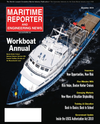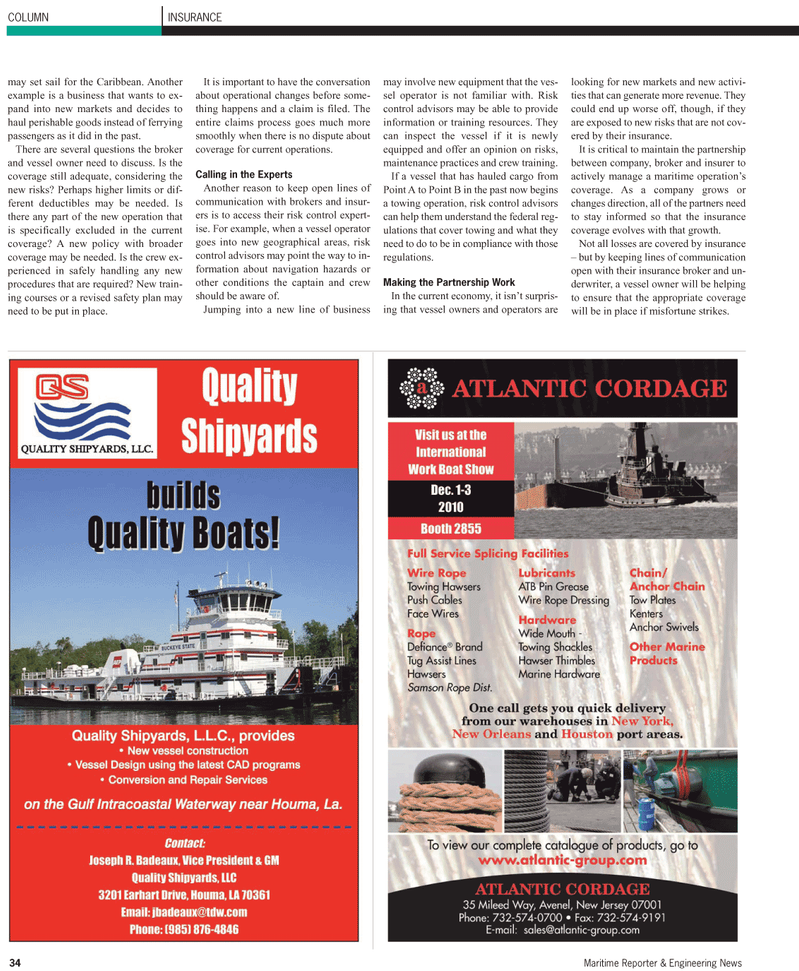
Page 34: of Maritime Reporter Magazine (November 2010)
Workboat Annual
Read this page in Pdf, Flash or Html5 edition of November 2010 Maritime Reporter Magazine
34 Maritime Reporter & Engineering News may set sail for the Caribbean. Another example is a business that wants to ex- pand into new markets and decides to haul perishable goods instead of ferrying passengers as it did in the past.
There are several questions the broker and vessel owner need to discuss. Is the coverage still adequate, considering the new risks? Perhaps higher limits or dif- ferent deductibles may be needed. Is there any part of the new operation that is specifically excluded in the current coverage? A new policy with broader coverage may be needed. Is the crew ex- perienced in safely handling any new procedures that are required? New train- ing courses or a revised safety plan may need to be put in place.
It is important to have the conversation about operational changes before some- thing happens and a claim is filed. The entire claims process goes much more smoothly when there is no dispute about coverage for current operations.
Calling in the Experts
Another reason to keep open lines of communication with brokers and insur- ers is to access their risk control expert- ise. For example, when a vessel operator goes into new geographical areas, risk control advisors may point the way to in- formation about navigation hazards or other conditions the captain and crew should be aware of.
Jumping into a new line of business may involve new equipment that the ves- sel operator is not familiar with. Risk control advisors may be able to provide information or training resources. They can inspect the vessel if it is newly equipped and offer an opinion on risks, maintenance practices and crew training.
If a vessel that has hauled cargo from
Point A to Point B in the past now begins a towing operation, risk control advisors can help them understand the federal reg- ulations that cover towing and what they need to do to be in compliance with those regulations.
Making the Partnership Work
In the current economy, it isn’t surpris- ing that vessel owners and operators are looking for new markets and new activi- ties that can generate more revenue. They could end up worse off, though, if they are exposed to new risks that are not cov- ered by their insurance.
It is critical to maintain the partnership between company, broker and insurer to actively manage a maritime operation’s coverage. As a company grows or changes direction, all of the partners need to stay informed so that the insurance coverage evolves with that growth.
Not all losses are covered by insurance – but by keeping lines of communication open with their insurance broker and un- derwriter, a vessel owner will be helping to ensure that the appropriate coverage will be in place if misfortune strikes.
COLUMN INSURANCE

 33
33

 35
35
